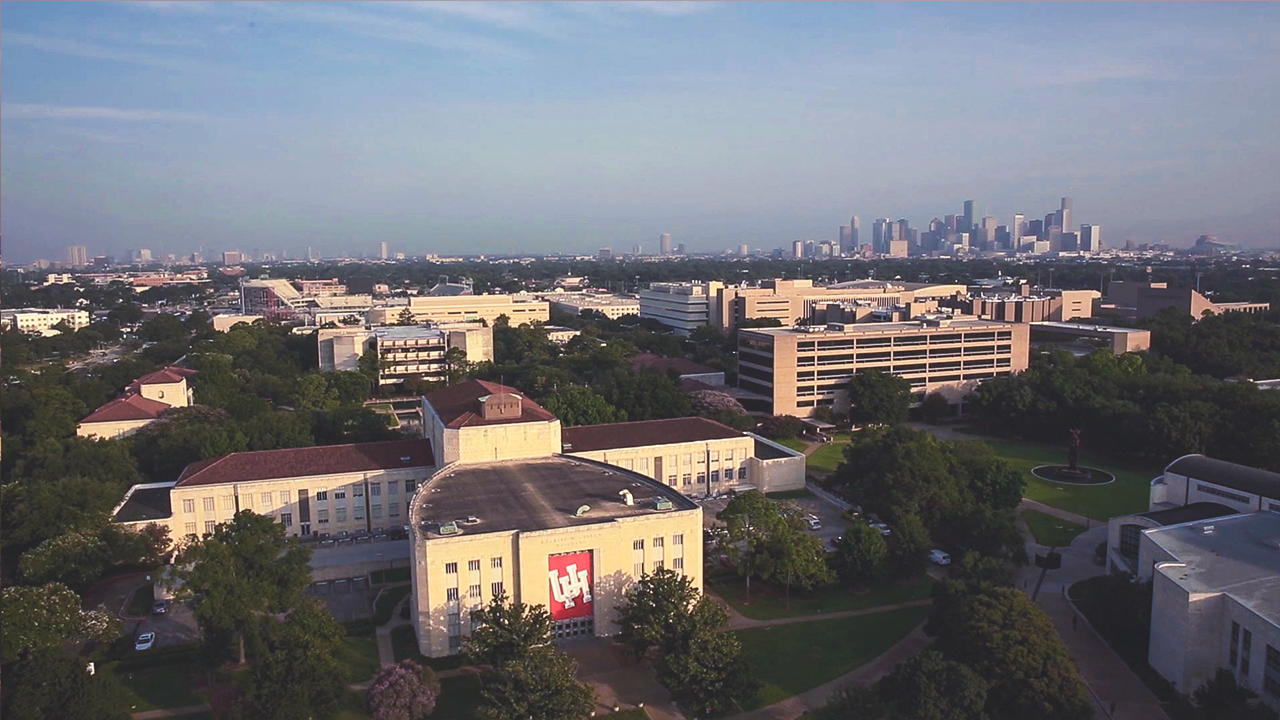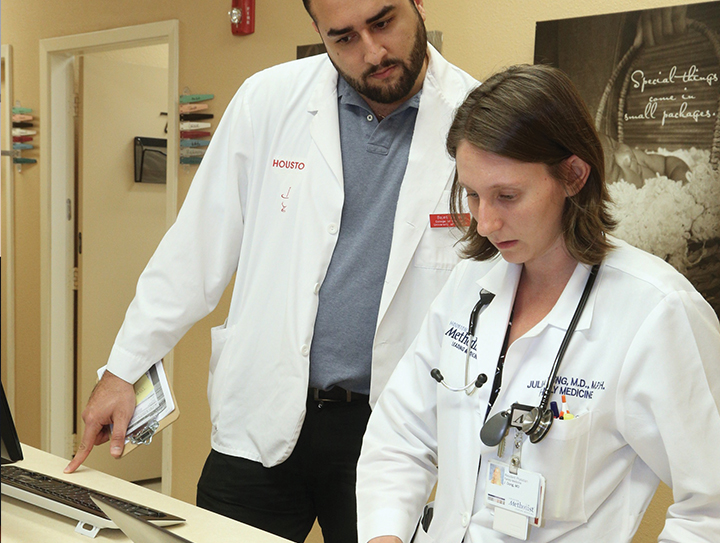On the Frontline

School nurses are the front line of public health for many children. For the rest of us, it is often a pharmacist..
There are pharmacies on seemingly every corner, and the pharmacist behind the counter doesn’t require an appointment.
Advice is free.

For Smith and Bernadette Asias-Dinh, both clinical assistant professors of pharmacy at UH, the partnership with Vecino Health Centers allows their students to help patients in need while working with medical students and residents.
All pharmacists are trained to identify potential interactions between medications or between medications and food, as well as how to counsel patients on their medications. But some clinical pharmacists, like Asias-Dinh and Smith, work one-on-one with patients under a collaborative agreement between the Texas regulatory boards governing both pharmacists and medical doctors, counseling them on diet and exercise and prescribing medications for diabetes, hypertension, high cholesterol, smoking cessation programs and blood clotting disorders.
They work closely with the clinic’s doctors. When a patient complained of a yeast infection and neuropathy – a common problem for people with diabetes – Smith collaborated with Briscoe, the woman’s primary care doctor, on those acute problems.
But after seeing the woman’s record of her glucose levels, she also took action on her own.
Part of their work is helping patients become better at both testing their blood levels and taking their medications. As many as 80 percent of patients admit to at least occasionally forgetting to take their medicine, Asias-Dinh said, and some aren’t actually taking what is written in their medical records. Pharmacists can bridge that gap, both recommending strategies to remember to take a medication and updating the files and explaining the patients’ current prescription regimens.
Asias-Dinh and Smith also talk with patients about a common problem – the cost of drugs.
The best drug on the market is no good if a patient can’t afford it, Asias-Dinh said.
They are collecting data on patient outcomes to determine if such intensive intervention improves their patients’ health. Ultimately, Asias-Dinh said, it’s about the movement of medicine to a more patient-centered approach.
Pharmacists can make recommendations reflecting a patient’s ability, motivation and resources, she said. “But it’s ultimately up to the patient,” she said. “It only works if you have buy-in.”
Pharmacists, along with students and other researchers across the span of the health-related disciplines, are on the front lines of community health.
Their targets are different, from understanding the molecular impact of chronic stress to teaching students to properly use an inhaler. All however, serve a common goal, harnessing the power of an urban university to better serve the neighborhood in which it sits.
Elsewhere on campus and around the state
These pages offer a look at some of the community health efforts happening at the University of Houston, but they are far from the only work in the field. A selection of other efforts:
Optometry
The College of Optometry offers an annual Vision Expo, offering exhibits and workshops for Houston’s visually impaired community. In addition, faculty and students work in eye clinics on the UH campus and around the city and state:
University Eye Institute: Located on campus, it offers a wide range of diagnostic and specialty services.
Mobile Eye Institute: A mobile clinic equipped with the latest ophthalmic technology, it brings comprehensive vision services to patients who do not have access to a traditional clinic.
La Nueva Casa de Amigos Health Center: In partnership with the city of Houston, just north of downtown
Good Neighbor Eye Clinic: Located in the Heights HOPE Clinic: Located in Alief
Community Eye Clinic: Located in Fort Worth
Cedar Springs Eye Clinic: Located in Dallas
Psychology
The UH Psychology Research and Services Center general clinic treats adults, including college students, for anxiety, depression, adjustment problems, relationship problems and other psychological concerns. Specialty clinics include:
Adolescent Diagnosis Assessment Prevention Treatment Center (ADAPT): Assessment and therapy clinic for adolescents ages 12-17 with emotional and relationship difficulties.
Sleep and Anxiety Clinic of Houston: Assessment and therapy clinic for children and adults with anxiety disorders and/or sleep problems.
Learning Disabilities Clinic: Assessment clinic for children (elementary through high school age) with academic concerns and/or attentional problems.
Academic Skills Clinic: An assessment clinic for children and college students with primarily academic concerns. Broader in scope than the Learning Disabilities Clinic, the ASC accepts children as young as preschool age, as well as adults with academic needs. Also deals with complex cases, such as multiple diagnoses, genetic disorders and Autism Spectrum Disorder.
Communication Sciences and Disorders
University Speech, Language, and Hearing Clinic: A United Way agency, o ers services to infants, children and adults with speech, language, and/or hearing impairments, including testing and treatment.